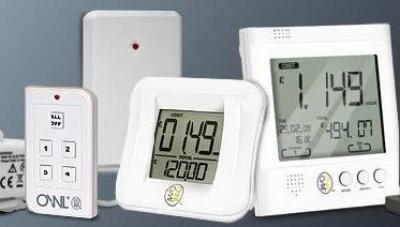BT Backs Radio-Based UK Smart Meter Strategy

The telecoms giant and its partners believe radio rather than mobile is the best way to deploy smart meters to 26 million homes in the UK
BT has announced that it is supporting a plan to use long-range radio as the main way to tie together the network of smart meters that the UK government wants in every home by 2020.
The telecoms giant announced a partnership with radio and satellite specialist Arqiva this week. Together with data management company Detica, the companies are pushing a plan to bring together consumer smart meters and the associated power company smart grids, using long-range radio technology.
The smart meter project represents one of the most significant tech projects of the last twenty years with plans to install new energy meters in 28 million homes and small businesses by 2020. BT said it has spent about 18 months analysing the radio-based approach proposed by Arqiva and Detica and believes that, unlike a mobile-based approach, it can provide nationwide dependable coverage.
“It is vital that any solution is designed for ubiquitous coverage of homes and is thoroughly secure and resilient. We believe that long range radio is the only technology to offer nationwide coverage and we will release more detail in a series of events in September,” said Olivia Garfield, BT Group Strategy Director.
Government Proposal Coming
Costs for the consumer and utility aspects of the project are expected to run into the billions with the the government set to release firmer proposals for the plan later this month. The partners claim that after analysing the government’s plan, they will flesh out their own proposals in a report to be released in September.
 The previous government released an estimate of the smart meter project costs in May 2009. Speaking at the time, then Energy and Climate Change Secretary Ed Miliband said the meter roll out was estimated to cost between £2.5 billion and £3.6 billion over the next 20 years . “This is another part of our Great British refurb,” he said. “The meters most of us have in our homes were designed for a different age, before climate change. Now we need to get smarter with our energy.”
The previous government released an estimate of the smart meter project costs in May 2009. Speaking at the time, then Energy and Climate Change Secretary Ed Miliband said the meter roll out was estimated to cost between £2.5 billion and £3.6 billion over the next 20 years . “This is another part of our Great British refurb,” he said. “The meters most of us have in our homes were designed for a different age, before climate change. Now we need to get smarter with our energy.”
David Green, programme director for Arqiva told eWEEK Europe UK that he was confident that the radio-based approach would be competitive with plans that utilise mobile telecoms or other infrastructure. “We have done the sums on what it will cost us to do versus competitive solutions and we are confident that we can be competitive. Otherwise, frankly, we wouldn’t be bidding,” said Green.
Non-consumer Technology
Commenting on why radio makes better sense than mobile – or even the wired infrastructure owned by BT for example – Green explained that it was important from a security prospective to have a “non-consumer” technology in place. “You can’t have anything on the consumer side of the network. This is about financial information so there is a potential problem with people tampering with the network or even simply switching it off if they have control over it,” he said.
Arqiva is keen to point out the “total cost of ownership” of its approach. “With our network the meter will go in first time and work and stay working for the life of the meter without re-visits,” added Green. “Other solutions may require multiple visits, you may have to do customised installations, that is when ours really starts to cost in.”
But despite the ambitions of BT and its partners, smart meter and associated grid technology has been slow to take-off in Europe, according to insiders. Speaking at a conference in May, Ian Mitton, HP’s utilities industry director and global leader on smart grid technology, admitted the technology wasn’t being deployed as quickly as experts hoped. “I think one of the problems is that in a good many parts of the world – projects are not happening fast enough. Smart grid and smart meter projects are slow to take off,” he told eWEEK Europe UK at the time.